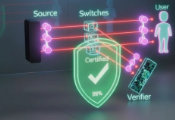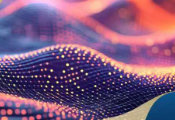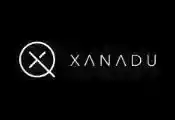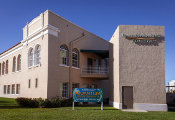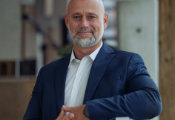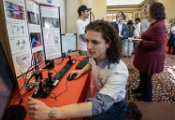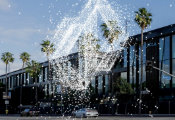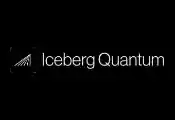Quantum Computing Is Not Yet Having Its ChatGPT Moment
April 04, 2025 -- Thomas Vidick discovered quantum mechanics at the Master’s level and thought it was fascinating, “The maths,” he explains, “is very elegant, very simple. It was so exciting to me because it was telling me that if you update your model of the world, of how things work, from classical mechanics to quantum mechanics, then this makes a difference to what you can compute.”
Complexity theory and entanglement
Head of the Quantum Complexity and Cryptography Laboratory (QCC) in the School of Computer and Communication Sciences (IC) Vidick uses complexity theory as a tool to study problems in quantum computing to gain new perspectives on classical concepts from theoretical computer science.
Vidick also works on entanglement which is another fundamental feature of quantum mechanics in which two or more quantum systems or particles can have a shared, correlated state even if they are separated by a large distance. This means that when you make observations of one particle and observations of the other, what you see will be correlated.
Is quantum computing having its ChatGPT moment?
Classic computing processes information that is represented in sequences of zeros and ones whereas quantum computing manipulates encoded information in a different way.
The excitement around quantum computing began in the 1980s based on two key discoveries: the development of the first quantum algorithm and the realization that quantum is not about computing, it’s about the way information is encoded and how that can be leveraged for secure communication. Yet, despite the developments in the field since then, Vidick doesn’t believe quantum computing is yet having its ‘ChatGPT moment’.
“It’s very noisy at the moment but it’s a bit over-hyped, in practice there isn’t a single, interesting problem that has been solved by any of these machines. It’s not to say that I don’t think that they will because there has been very impressive experimental progress, but not yet. I think it will be a decade or so before this happens.”
And, he likens today’s situation in quantum computing to where machine learning was several years ago, when there was a strong theoretical push but not much happening in practice.
“Beyond nice observations we weren’t doing much with machine learning then because we didn’t have large enough computers. Then, suddenly, the machines became sufficiently large and we realized machine learning really is amazing, it is able to do so many things that we had no idea about, that the theory didn’t predict. I think this also stands for quantum computing.”
Pushing quantum information theory forward at EPFL
Vidick’s focus at EPFL will be on complexity theory questions that are attached to what are called many body systems, ones that naturally arise when physicists model certain kinds of experiments or configurations where particles are arranged in a lattice or array. There are forces that act on these particles, such as attraction or repulsion.
“You model this and look at the most stable state of the configuration. It’s something physicists are interested in because if it has the right properties it may lead to some interesting materials like superconductors. I'm interested in it from a complexity theory point of view. What kind of pattern of entanglement are you going to observe? Maybe the entanglement has a local pattern and if it does, can you represent the state of that system mathematically, in an elegant way, such that you can perform computations on it?”
And Vidick is happy to be doing this research at EPFL. Originally from Belgium, he completed his PhD at Berkeley and then held faculty positions in the United States at the California Institute of Technology and in Israel at the Weizmann Institute of Science.
“I’m still finding my way around EPFL but I’m very happy to be here. People are extremely helpful and friendly and my impression after a few months is that the students here are very strong. The region is also definitely very beautiful. We have put the kids on skis and I love biking. I bike from home to EPFL now and it’s great!”
2025 has been proclaimed by the United Nations General Assembly the International Year of Quantum Science and Technology.


